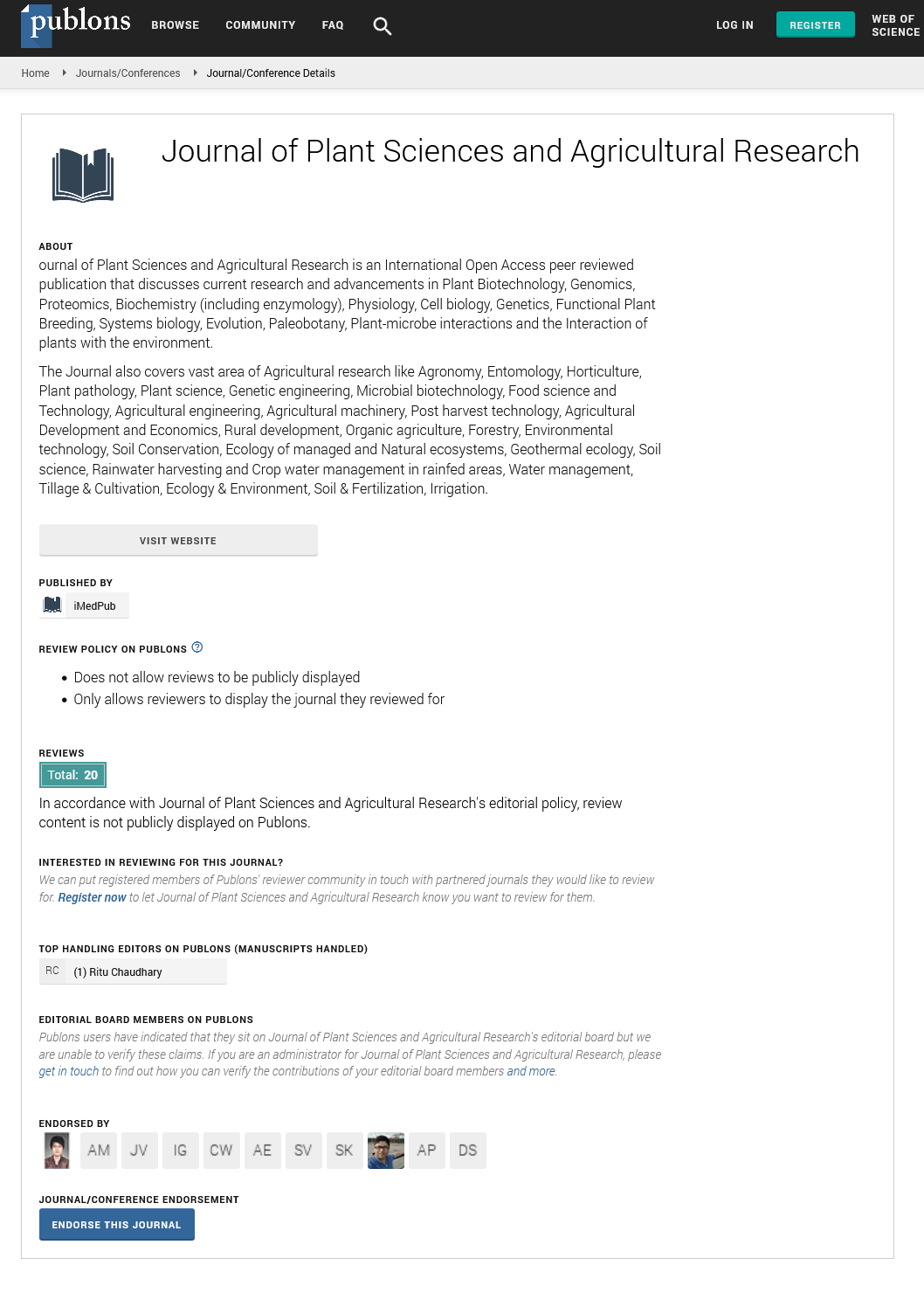Abstract
In Vitro Antifungal Activities of Three Aromatic Plant Extracts Against Fusarium Oxysporum Schlechtend. Fr. F. Sp. Lycopersici (Sacc.) Causal Organism of Fusarium Wilt In Tomato
In vitro assay of aqueous extracts of Allium sativum, Zingiber officinale and Dysphania ambrosioides were evaluated against Fusarium oxysporum. Five concentrations of cold and hot water aqueous extracts were obtained by infusing 4, 8, 12, 16, and 20 g of powder in 20 ml of sterile distilled water for 24 hours to obtain 20, 40, 60, 80 and 100% concentration, the hot water extracts were obtained using similar procedure with each flask placed in a water bath at 90°C for 90 mins. Food poisoned technique was employed for investigating the fungi toxicity of the plants essential oils (EO) against Fusarium oxysporum growth. An aliquot of 0.1 of the EO was dissolved in 0.9 ml of Tween-20 and mixed with 15 ml of Potato Dextrose Agar medium to achieve 20, 40, and 60% concentration, while the undiluted oil was recorded as 100%. The plates were inoculated with a 6mm assay disc cut from 7 day old culture fungus; observations were recorded on 7th day of incubation. Results indicate a reduction in F. oxysporum growth in the culture media, with hyphae becoming visible 48-50h after inoculation. A. sativum at 100% gave the highest inhibitory effect (71.24%) on mycelial growth, and compete favourably with Carbendazim (80.38%). The hot water extraction revealed better antifungal effects (45.86%) on F. oxysporium than cold water extract (33.80%). A. sativum showed the highest inhibition of 71.24% and 66.92% at 80% and 100% respectively, after Carbendazim (80.38%) at 0.5 mg/ml which is the standard. However, all extracts recorded the lowest mycelia growth at 20% concentration level.
Author(s): Akinlolu O Ohunakin and Omofunmilola O Bolanle
Abstract | Full-Text | PDF
Share This Article
Google Scholar citation report
Citations : 135
Journal of Plant Sciences and Agricultural Research peer review process verified at publons
Abstracted/Indexed in
- Google Scholar
- Publons
- Secret Search Engine Labs
Open Access Journals
- Aquaculture & Veterinary Science
- Chemistry & Chemical Sciences
- Clinical Sciences
- Engineering
- General Science
- Genetics & Molecular Biology
- Health Care & Nursing
- Immunology & Microbiology
- Materials Science
- Mathematics & Physics
- Medical Sciences
- Neurology & Psychiatry
- Oncology & Cancer Science
- Pharmaceutical Sciences
